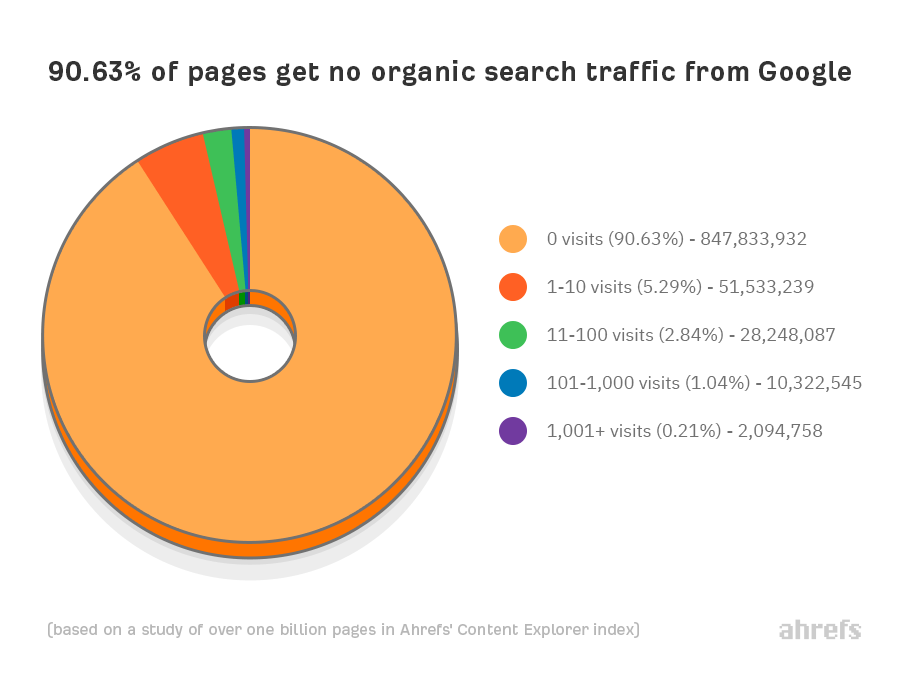SEO writing, content marketing, positioning strategies. So many complications, right?
Chances are you have heard the terms “SEO” and “content marketing” being used together. This is because the two are closely related and often work in synergy to create a successful content strategy.
Now, what they don’t tell you is exactly how you can ensure maximum return on investment by combining SEO writing with content marketing. The ultimate goal of both activities is to bring more traffic to your website, let people know your brand exists, and ultimately increase revenue.
Get with just one click:
- Captivating content that grabs your audience’s attention
- Unmatched creativity for emotionally engaging content
- Trend-savvy copy to climb the search rankings
Table of Contents
The Benefits of SEO-Oriented Writing
In the vast ocean of online information, standing out from the crowd is no longer a luxury; it’s an absolute necessity. And while some might dismiss SEO-oriented writing as just another buzzword of the moment, the truth is that it represents the backbone for anyone looking to communicate effectively in the digital world. But why should we care about all of this?
Visibility: Think about when you search for something on Google. How often do you go beyond the first page? Well-calibrated and optimized content ensures that your site ranks there, among the top results, earning the attention it deserves.
Visitor Flow: Visibility is not just a matter of pride. It means more people are clicking, reading, interacting. And not because you paid for an ad, but because you offered something relevant to their search.
Stability and Authority: Imagine being in a room full of people discussing the same topic. SEO-oriented writing gives you the megaphone. It not only makes you heard but also positions you as an authoritative voice in the debate.
But don’t just take my word for it. Here are some statistics that highlight the importance and benefits of SEO-oriented writing:
- 68% of online experiences begin with a search engine. This means that the majority of people start their online journey with a search. (Source: BrightEdge)
- Only 0.63% of Google users click on results from the second page. This underscores the importance of ranking on the first page of search results. (Source: Backlinko)
- 53.3% of all website traffic comes from organic search. This demonstrates the importance of having SEO-optimized content. (Source: BrightEdge)
- 90.63% of pages don’t receive organic search traffic from Google. This emphasizes the importance of having unique and high-quality content. (Source: Ahrefs)
- Google uses over 200 factors in its algorithm to rank websites. This showcases the complexity and depth of SEO. (Source: Backlinko)
So, yes, while the online world may seem like a chaotic place, with the right SEO-oriented writing, you can build a solid bridge connecting you to the hearts and minds of your audience. And as these statistics demonstrate, the benefits are tangible and measurable.
What is the connection between SEO-oriented writing and a Content Marketing strategy?
SEO depends on high-quality content. High-quality content depends on SEO to get organic traffic. In short, this is the main connection between the two. They help each other do their “jobs” well.
For example, suppose we are a user looking for “The recipe for pizza dough.” The first Google search result is a perfect example of the synergy between content marketing and SEO in action. The blog post that ranks as the top result on Google gets a lot of organic search traffic.
To combine the use of SEO friendly writing and content marketing, you need to incorporate your SEO strategy into your content marketing strategy, regardless of the types of content you plan to create. When creating your content, it is critical to make sure you follow SEO best practices.
This means making sure to:
- Conduct keyword research to determine the type of relevant content to create;
- Create content with user experience in mind by optimizing the UX and technical SEO of your website;
- Implement an internal linking strategy to achieve greater SEO gains;
- Create meta descriptions for each piece of published content;
- Seeking to rank for long-tail keywords with lower search volume but less competition to gain more search traffic quickly;
- Invest in obtaining return links to increase domain authority.
On the other hand, SEO writing activity depends on being meticulous and consistent in applying best practices to improve ranking factors.
Artificial Intelligence and Its Revolution in SEO
The advent of AI in the SEO world has brought about a true revolution. Sophisticated algorithms can quickly analyze large amounts of data, identifying patterns and trends that may escape the human eye. This means a better understanding of keywords, user behaviors, and ranking opportunities.
And it’s not just about automation: artificial intelligence offers insights and data-driven strategies, making SEO not only a science but also an art.
How to facilitate SEO writing with Contents.ai‘s artificial intelligence
SEO writing is an essential practice for anyone with a website or blog because it optimizes content so that it appears in the top results on search engines. This not only increases traffic to one’s site, but also improves the quality of the content, making it more interesting and engaging for the audience.
The use of artificial intelligence may seem a little scary, but it is actually very useful in facilitating the work of SEO writers. An AI writing assistant can be used for the creation of high-quality content in half the time, as the AI can generate ideas on keywords to be included, text structure, and suggest transition words.
The only thing to do is to provide a topic and a general idea for writing content, and then the program will do the rest. The best thing about using AI in SEO writing is that you can automatically enter your favorite keywords without having to search for them manually.
Automatic sentence rephrasing makes it possible to create clear and direct content that is as understandable as possible. Finally, an AI writing assistant can create content tracks and suggest small changes to improve existing content.
Thus, we can say that the advantages of using an artificial intelligence such as Contents.ai ‘s for text writing are:
- Create high-quality content in half the time
- Automatically enter favorite keywords
- Eliminate the problem of plagiarism
- Automatically rephrase sentences for clarity
- Creating content tracks
- Enhance your existing content with a content enhancement model.
Also read: How to write a successful blog article
Also read: What Google thinks about content written with artificial intelligence
Imagine having a tool that helps you generate a search-optimized article. Here’s what Contents.ai does.
Let’s take a practical look at how to create a blog article using Contents.ai
Once logged in to the Contents.ai dashboard:
- Browse through the various templates and click on the“Assisted Article” template;
- Enter all the information about your content, including the search terms you wish to place in the left sidebar;
- Click generate and let Contents.ai do the rest;
- Once Contents.ai generates the content for you, you can check it for typos or you can choose to rephrase sentences you don’t like.
- If a paragraph does not fully satisfy you, you can delete some parts and leave only those that interest you;
- You can also add a sentence to the end of a paragraph and then click on“Extend Paragraph.” Contents.ai will continue the speech you started to write.
- You can also add new paragraphs to expand your article. You could, for example, insert new titles that contain the keywords you want to rank for in Google.
You need to know how to work quality and strategy to rank in the top search results on Google.
We know that SEO writing and implementing an effective content marketing strategy is a long and laborious process, and this is where the tools for AI-powered writing such as Contents.ai , which can help you speed up this process.
Best of all, you don’t have to worry about adding keywords to your AI-generated content. Once you say what they are, Contents.ai naturally includes them.
Join the Contents.ai community to learn how other marketers create content, drive organic traffic and grow their revenue.
Freehand Writing vs. AI-Guided Writing
We find ourselves in an era where the tradition of writing collides with the advent of technology. Both modes have their charm and advantages.
Freehand Writing: There’s something deeply authentic about putting pen to paper or typing words on the screen, guided by one’s inner muse. This mode carries the essence of individuality, a touch of personality, and the intricate emotional nuances that only a human being can convey. Every sentence, every word, becomes a unique seal of who we are.
AI-Guided Writing: On the other hand, we have artificial intelligence, which has expanded the horizons of what is possible in writing. With its unmatched speed, precise optimization, and the ability to delve deep into data to extract relevance suggestions, AI-guided writing is like having a superpowered co-author by your side.
At the end of the day, perhaps we don’t have to choose. Perhaps the future of writing lies in the harmony between the pulsating human heart and the unstoppable power of the machine.
How to Integrate Contents.ai into Your Daily Routine
The idea of introducing a new digital solution into our habits can sometimes generate a certain degree of hesitation. However, with Contents.ai , the adaptation is smooth and intuitive, almost like sipping your morning coffee. You can simply input your topic of interest and watch Contents.ai weave its magic, offering you keyword suggestions, catchy headlines, and relevant subheadings. If you prefer to unleash your authentic voice, write freely, and use Contents.ai as your digital compass, guiding your writing toward perfect optimization.

